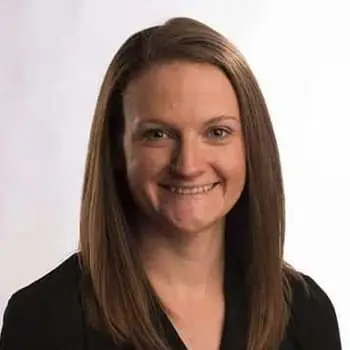A large percent of drug overdose deaths are caused by the potent opioid fentanyl. Recognizing the symptoms of an overdose and getting the person immediate help could save their life.
Fentanyl is a powerful prescription opioid that is used for pain relief but has a strong potential for abuse. It is generally only used in people who have become tolerant of other opioid pain medications, to the point where they are no longer effective at safe doses. Due to its euphoric effects, fentanyl is also used recreationally. Fentanyl is usually administered as a patch when it is prescribed but can be bought in pill or powder form on the drug market.
When a person takes too much, fentanyl can cause an overdose or even death. Statistics show that fentanyl overdoses are increasing in the United States. A DEA assessment of the national drug showed that fentanyl is a major contributor to drug overdose deaths. In 2017, about 28,400 people died from taking synthetic opioids, which largely includes fentanyl.
Knowing how fentanyl can cause an overdose, what the symptoms of an overdose are and how an overdose is treated may help you recognize if someone is overdosing on fentanyl and get them help.
Treatment Can Be Life Changing. Reach out today.

How Much Fentanyl Does It Take to Overdose?
Fentanyl was originally developed as a strong pain medication for cancer patients, with a potency that is 50–100 times that of morphine. When prescribed, it is usually administered as a patch that is worn on the skin, lozenges (like cough drops) or given as a shot. Synthetic fentanyl made for recreational use can come as a powder or made into pills.
The dosage of fentanyl depends on the form it comes in. If it is not in a prescription form, but rather made synthetically, the doses can vary greatly depending on how it was made and if it was mixed or diluted with any other substances, which is a common practice when making illicit drugs. This can make fentanyl very dangerous to use since it is often hard to tell how much of it a person is taking. This also puts a person who takes synthetic fentanyl at risk for overdosing on it.
There is not a set amount of fentanyl that will cause an overdose. It will depend on the person, their overall health and if they have used fentanyl in the past. An overdose will occur more quickly in a person who has never taken fentanyl compared to a person who has previously used fentanyl and developed a tolerance to it.
See More: Prevent Overdose with Harm Reduction Therapy
Unintended Fentanyl Ingestion On the Rise
There are many fentanyl overdose stories where a person has accidentally overdosed. This is usually a result of the person not knowing what is in the substance they are taking. It is becoming more and more common for drug dealers to mix fentanyl with other drugs. Due to its high potency, mixing it with other drugs will still cause the person to get high but cuts down on the amount of the drug dealer has to use, saving them money. It is becoming common to find heroin or coke cut with fentanyl. When a person unknowingly takes these drug combinations, it can lead to an accidental drug overdose.
What Happens During a Fentanyl Overdose?
During a fentanyl overdose, the body is becoming overwhelmed with the chemical effects of the drug, which causes normal bodily functions to shut down or stop. An overdose can occur no matter what route of administration is used for fentanyl. If used other than how it is prescribed, a fentanyl patch can lead to the same overdose signs and symptoms as taking fentanyl through other routes. The symptoms of a fentanyl overdose are similar to that of other opioid drugs, which includes:
Does Narcan Work on Fentanyl?
Narcan, also known as Naloxone, is a drug that is used to treat opioid overdoses. It works almost like a fentanyl antidote, in that it counteracts the effects of fentanyl. In order for this to work, it is imperative that it is given as quickly as possible when an overdose is suspected. Because fentanyl is more powerful than other opioids, it may take higher doses of Narcan to successfully work in the reversal of a fentanyl overdose.
The other problem that can occur during an overdose situation is that it may be unclear what drug is causing the overdose. If a person has unknowingly taken a drug that is a mix of fentanyl and another drug that is not an opioid, such as cocaine, then Narcan may not work in this case. Narcan specifically works to block the effects of opioids but would not work to block the effects of a stimulant drug like cocaine. When a person accidentally takes a mixed drug, it is hard to know which is causing the overdose.
There are types of fentanyl, acrylfentanyl, and tetrahydrofuran fentanyl, that have been reported to be resistant to Narcan. However, this is not the case. Narcan only works for a certain amount and time. Depending on how much and what type of fentanyl the person has taken, along with how long the fentanyl has been in their system, it may outlast the duration of the Narcan effects. In these cases, more than one dose of Narcan may be used, but it is effective for the use in overdoses from all types of opioids.
Fentanyl Overdose Treatment
When a person has overdosed on fentanyl the most important thing is to get them help as fast as possible. Calling 9-1-1 or your local emergency number should be the first step if an overdose is suspected. Fentanyl overdose treatment will involve the administration of Narcan and monitoring of the person’s breathing. Most overdose deaths are caused by the person stopping breathing. The Substance Abuse and Mental Health Services Administration has an Opioid Overdose Toolkit with more information on how to deal with an opioid overdose such as fentanyl.
Most people who overdose on fentanyl have a fentanyl use disorder. After a person recovers from an overdose, it will be imperative for them to undergo fentanyl addiction treatment to ensure that an overdose will not occur again. Fentanyl addiction treatment will involve medical aid to help the person deal with fentanyl withdrawal symptoms, followed by therapy and continued support to address the underlying causes of the use disorder.
If you or a loved one have a fentanyl or opioid use disorder, The Recovery Village Palm Beach at Baptist Health is here to help. We have comprehensive treatment plans that are tailored to an individual’s needs. Contact The Recovery Village Palm Beach at Baptist Health today to speak to one of our representatives about how we can help you on your road to recovery.











